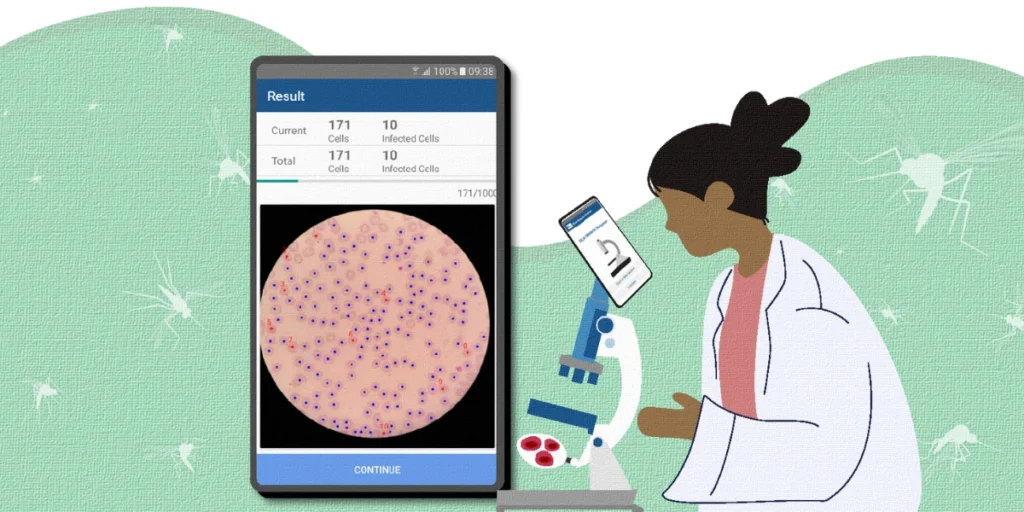A groundbreaking study reveals how AI boosts malaria diagnosis in remote Ethiopian villages, slashing errors and saving lives. Partnering with the Bill & Melinda Gates Foundation and Ethiopia’s Ministry of Health, nonprofit JSI ran a randomized trial that wove AI into frontline tools. This tech upgrade empowered 341 community health workers across nine malaria hotspots to spot the disease faster and smarter, paving the way for elimination goals.
The trial embedded Audere’s HealthPulse AI—a mobile reader for Rapid Diagnostic Tests (RDTs)—right into Ethiopia’s electronic community health information system (eCHIS). Workers snapped photos of RDTs on their phones, and AI crunched the data in seconds. While humans nailed basic positive/negative calls, AI boosts malaria diagnosis shone in pinpointing species, hitting 100% accuracy for the lethal Plasmodium falciparum.
AI Boosts Malaria Diagnosis: Game-Changing Wins from AI

The study uncovered three big systemic perks that ripple through healthcare. AI boosts malaria diagnosis not just in the clinic but across supply chains and surveillance. Here’s how:
Just wrapped an exciting journey creating a malaria dataset with @inflectivAI Kepler — a powerful tool that makes data structuring smooth and intuitive. 😉🤩
— Senator Skelz 👑⧉ (@UsoroEmmanuel) November 11, 2025
Next, I built a smart AI Agent,
↘️ Interact with the chatbot here: https://t.co/W7JBrhHSKr
Then I proceeded to upload… pic.twitter.com/WujCS8H86i
- Smarter Prescriptions: Health workers boosted correct antimalarial dosing by over 10% right away—and it stuck. Snapping and sending RDT images sparked accountability, making everyone double-check before prescribing.
- Fever Case Clarity: AI confirmed over 30% of fever reports as malaria-free, curbing overuse of drugs. This sharpens surveillance for other outbreaks, like epidemics, and cuts waste in tight budgets.
Also Read: Smartphone Usage Statistics: Trends & Insights
- Supply Chain Alerts: The system caught a flaw in over 30% of new RDTs—faint control lines from a manufacturing glitch. Officials fixed it on the fly, preventing bad tests from reaching patients.
Workers raved about the tool: “Fast and easy,” it built their confidence. When AI clashed with their reads, they smartly referred patients for lab checks, ensuring tough cases got expert eyes.
This Ethiopia success story offers a blueprint for low-resource spots worldwide. AI boosts malaria diagnosis by blending tech with human grit, speeding treatment and fortifying health systems. As malaria claims 600,000 lives yearly, mostly kids, experts say scaling this could turbocharge global efforts. JSI leaders hail it as a “critical leap” toward a malaria-free future—proving AI isn’t just hype, it’s a lifesaver.
More News To Read: Opera Neon: The AI Browser Replacing Chrome and Comet
